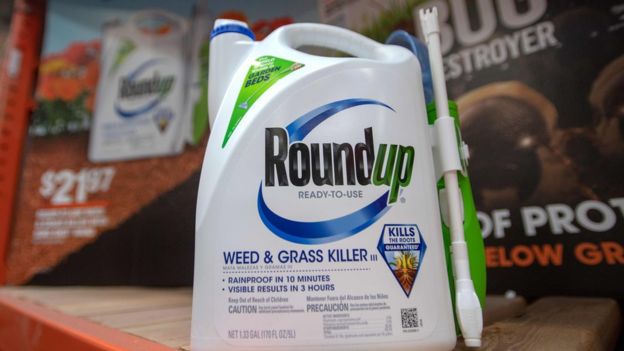 Have you ever seen Roundup at your local department store?
Have you ever seen Roundup at your local department store?
Roundup is a product manufactured by a company called Monsanto, and it is used by farmers and gardeners to kill weeds and keep their crops clean.
Over the past few years, Monsanto has been involved with a lawsuit against Edwin Hardeman, a man who claimed that Roundup partially caused him to have cancer.
On Wednesday, March 17th, Monsanto was ordered by the federal court to pay $80 million to Hardeman because it did not warn users of Roundup’s harmful effects and caused Hardeman to have cancer.
What is Monsanto?
 Monsanto is a biotechnology corporation, meaning that it focuses on using technology and science to create products for farmers and their crops. It was founded in 1901 and originally sold chemical additives such as caffeine and artificial sweeteners.
Monsanto is a biotechnology corporation, meaning that it focuses on using technology and science to create products for farmers and their crops. It was founded in 1901 and originally sold chemical additives such as caffeine and artificial sweeteners.
In 1974, Monsanto developed Roundup and it quickly became one of the best-selling herbicides (a substance that kills unwanted plants such as weeds) in the U.S.
Farmers were drawn to Roundup because it reduced to need to manually remove weeds and allowed them to easily prevent weed growth.
A few years later, Monsanto’s scientists began to use genetic modification on plant cells to manipulate the physical characteristics. Now, Monsanto is able to use this science to create plant seeds with desirable characteristics, such as a plant that is resistant to a particular pest or a crop that requires a minimal amount of water to survive.
However, Monsanto’s use of these genetically modified organisms (GMO’s) has made it the center of controversy for several years.
What Is Roundup?
 Roundup has been used by consumers for over 40 years, but the current lawsuit might force this product off the market.
Roundup has been used by consumers for over 40 years, but the current lawsuit might force this product off the market.
One of Roundup’s most active ingredients, glyphosate, significantly weakens health and was determined by the World Health Organization to be a carcinogen (cancer-causing) in 2015.
The Environmental Protect Agency later declared that glyphosate was not a carcinogen, but researchers have discovered evidence showing that Roundup causes cellular mutations (abnormal cell structures) which could lead to cancer.
Edwin Hardeman used Roundup for over 26 years before he was diagnosed with cancer, and he claims that he was not aware of Roundup’s carcinogenic ingredients.
If a product is known to have detrimental health effects, companies are obligated to include labeling on the product’s package so that users are aware of the product’s risks. However, Monsanto failed to provide any warning to consumers that Roundup contained a possible carcinogen, glyphosate.
The outcome of the lawsuit remains uncertain, but this controversy highlights the importance of understanding the products that you purchase and becoming more aware of any issues that surround them.
Sources: New York Times, Reuters, NPR








